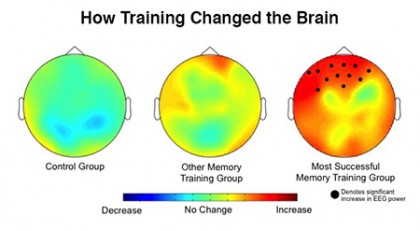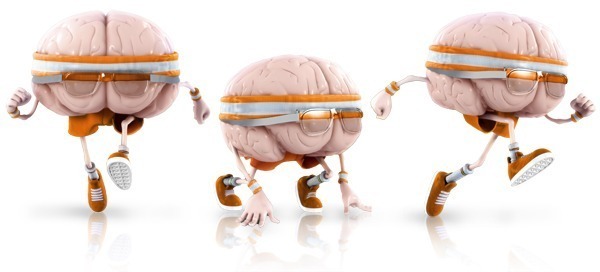Posts Tagged ‘improve-attention’
Johns Hopkins study shows how brain training, if correctly targeted, can enhance cognitive and brain performance
_________________________________________________________________ This training exercise boosts brain power, Johns Hopkins researchers say (Johns Hopkins release) “One of the two brain-training methods most scientists use in research is significantly better in improving memory and attention, Johns Hopkins University researchers found. It also results in more significant changes in brain activity.
Read MoreUpdate: Brain teasers and brain fitness tips to improve attention and memory in 2016
Dear SharpBrains friend, Time for SharpBrains’ December e‑newsletter…and we are honored to announce that the Japanese edition of The SharpBrains Guide to Brain Fitness just became available, and is doing well! (more below) Let us wish you Happy Holidays and Happy New Year, and share a few resources and insights that may come handy in 2016. Resources to enhance brain…
Read MoreBrain Scientists Identify Links between Arts, Learning
Arts education influences learning and other areas of cognition and may deserve a more prominent place in schools, according to a wave of recent neuroscience research.One recent study found that children who receive music instruction for just 15 months show strengthened connections in musically relevant brain areas and perform better on associated tasks, compared with…
Read MoreDoes cognitive training work? (For Whom? For What?)
The study shows how cognitive training work and for whom. Short-term improvements can be obtained for some specific cognitive skills by using a computerized training program.
Read MoreShould Social-Emotional Learning Be Part of Academic Curriculum?
The Secret to Success New research says social-emotional learning helps students in every way. — by Daniel Goleman Schools are beginning to offer an increasing number of courses in social and emotional intelligence, teaching students how to better understand their own emotions and the emotions of others. It sounds warm and fuzzy, but it’s a trend…
Read MoreUpdate: Emerging Tools, Not Magic Pills
Here you are have the twice-a-month newsletter with our 10 most popular blog posts. Please remember that you can subscribe to receive this Newsletter by email, simply by submitting your email at the top of this page. Our first Brain Training/ Fitness Webinar Series was a success with several hundred participants and great feedback. If you…
Read More

